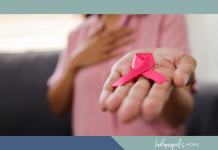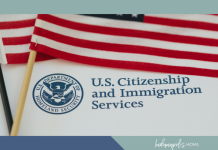 My ADHD diagnosis came with several revelations. At 32, I received my official diagnosis, though I knew long before that I had quirks that likely fell into a type of ADHD category. I have always struggled with focus issues, impulse control, and, though I didn’t realize it, hyperfocus. As I dealt with my diagnosis and continued to learn about it, I was entranced at all of the symptoms I had missed entirely, thinking instead that these downfalls were a negative part of my personality that I couldn’t seem to overcome. When I learned about RSD, I was just shellshocked. I read the description to many people I knew: my husband, mom, and sisters. The look on their face was a relief to me, knowing that it was another part of me that had an explanation.
My ADHD diagnosis came with several revelations. At 32, I received my official diagnosis, though I knew long before that I had quirks that likely fell into a type of ADHD category. I have always struggled with focus issues, impulse control, and, though I didn’t realize it, hyperfocus. As I dealt with my diagnosis and continued to learn about it, I was entranced at all of the symptoms I had missed entirely, thinking instead that these downfalls were a negative part of my personality that I couldn’t seem to overcome. When I learned about RSD, I was just shellshocked. I read the description to many people I knew: my husband, mom, and sisters. The look on their face was a relief to me, knowing that it was another part of me that had an explanation.
RSD, short for Rejection Sensitivity Disorder, can go hand in hand with ADHD. According to webmd.com, “RSD doesn’t have an official set of symptoms and isn’t a formal medical diagnosis. But doctors and therapists often use the term when they notice exaggerated reactions connected to an official behavioral condition like ADHD.” (Taken from What is Rejection Sensitive Dysphoria by Stephanie Watson).
I have always been sensitive. My feelings not only have gotten hurt easily, but it seems that I have struggled more with being able to come out of the hurt than others. I distinctly remember bouts of sobbing in elementary school because I was just sure that my best friend didn’t like me anymore or no one wanted to come to my party (which totally didn’t happen). People just thought that I was sensitive or even “a princess” who would be devastated when things didn’t fall nicely into place for me. I have been called “dramatic” numerous times, and I can only fathom how many people used the term to describe me behind my back, let alone to my face.
As hard as it was to grow up being extra sensitive, RSD has been much more challenging to overcome in my marriage and motherhood. It is hard for me not to quickly think my husband is upset with me for something when I don’t hear back from him right away or feel like I’m not good enough in my marriage when we have an argument. Motherhood has also brought on a lot of feelings of rejection, especially when it seems to me that I don’t measure up to what I see on social media. I distinctly remember when my oldest was very little, seeing a friend talk about making rock candy with her toddler. It brought me to tears. It is laughable now, but at the time, I was sure I just would never be able to give my kids the childhood they deserved because I didn’t make homemade rock candy with my two-year-old.
Since my ADHD diagnosis, I have found a wonderful regiment of medication and vitamins that help tremendously, and I go to therapy regularly (EVERYONE SHOULD GO TO THERAPY!!). I have learned breathing techniques that help with extreme feelings and anxiety that go along with my RSD struggle.
Knowing that there is a reason why I am the way I am is comforting. Amid all my flaws and the traits that I will always need to work on, knowing that it could be a bit harder for me to handle at times is helpful. I also personally have been able to take my ADHD story and make it my own, which is one plus (in my opinion) to being diagnosed later. Most importantly, I have learned coping mechanisms that I wouldn’t have without my diagnosis. Being neurodivergent isn’t an excuse for how we behave or think; instead, it allows us to find ways that help us cope that we may have never been exposed to. For that, I am incredibly thankful and will continue to work towards being a better mom for my kids and a better version of myself daily.








